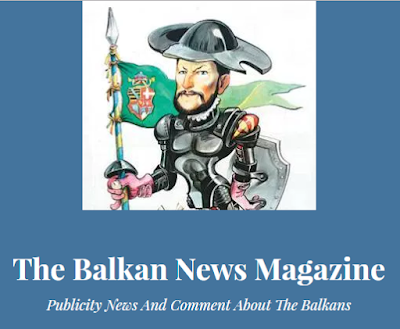The Satyr has lived amongst us journalists and writers for many years. Our way of debunking pompous political asses - those prone to mutual admiration, or self aggrandizement - seemed to gather strength during the 19th Century, when the very first satirical magazines appeared on the newsstands in middle Europe, and Great Britain.
Regarded as thoroughly sacrilegious, during the reign of Queen Victoria, Punch gave birth to a tradition of political lampooning and humour, which had previously been demonised by the great and good.
These days there are TV cameras in parliament – in whichever country you may choose to live– but in Victorian times, speeches were exclusively recorded by The Times, court circulars, and of course in Hansard. Whatever the great unwashed and exploited working classes may have believed in at the time, was another thing, but in those days their opinions were rarely sought and generally ignored. Punch Magazine brought much of the political theatre onto the British breakfast table, and for many years - apart from comic books - it was the only readable satirical magazine readily available. However, in the nineteen sixties came Private Eye, Richard Ingrams, William Rushton, and the inimitable Peter Cook.
Their way of debunking the political elite and the self proclaimed guru’s of the day, was to laugh at them. If people threatened to sue them for their troubles, they would simply give them a cartoon name, and continue to mercilessly lampoon them. That is until the editors of Private Eye found themselves standing in the dock in the High Court, and on their way to prison. But as the political strictures of the time began to wane, we started to see very rich people prepared to pay the fines imposed by the courts, and very posh lawyers, to defend their activities. In fact very few people were safe from Private Eye, or from Punch Magazine, including Margaret Thatcher and even Ronald Reagan!
When Richard Ingram became too old for Private Eye, he handed the editorial mantle over to Ian Hislop - who is still at the helm - and started the magazine which many of us older readers enjoy, The Oldie Magazine.
Here, paedophile Jimmy Saville is portrayed as The Pied Piper of Hamlin.
A much more sophisticated monthly magazine, it has over the years attracted most of the top British writers and journalists into its ranks, many of whom are regarded as national treasures.
And then came Charlie Hebdo. Famous for attracting the attention of ISIS and the unfortunate results, this has now become Europs number one satirical magazine, and the scourge of nationalism and bigotry everywhere.
In the new German edition of this magazine, Angela Merkel is depicted as a somewhat tired and complacent politico - in need of a few repairs and political reinvention - who represents a Germany in need of change.
However, the change may well be within the ranks of Charlie Hebdo itself, and its many anarchic writers and cartoonists. Because, whatever it was once famous for may have been lost in the clouds of debris and dust - caused by an attack on its Paris premises - by a certain dwindling caliphate.
To see the strength and purpose, of a heroic magazine like Charlie Hebdo, turning into mainstream satire is, for me at least, a step in the wrong direction, and maybe the first sign of a general change in EU thinking.
From social inclusion, to apparent nationalism, I can now smell the unpleasant odour of an upcoming French and German election. But, what is happening in Europe, and has it stopped being funny?
The two French gnomes – Nicolas Sarkozy and Francois Hollande – look like history to me, and short of a miracle, I don’t quite see Maree Le Pen as the new French President, which leaves Francois Fillon. Likewise, it is hard to see any up and coming contenders for the post as German Chancellor, able to dislodge Angela Merkel, and so it might be more of the same. So, where does that leave the satirists, humourists and the cartoonists of yore?
THE BALKAN NEWS MAGAZINE ON LINE
I think that politics has become so grey and insipid – lost and inward looking – that, they must have found it all a bit depressing and practically given up. But wait a moment; I think I might have a bright idea, and something to cheer you all up for Christmas!










No comments:
Post a Comment